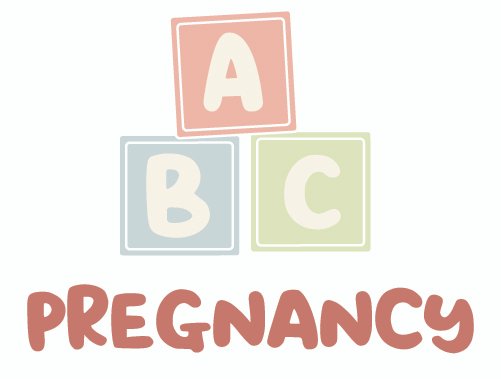
Managing Emotional Changes in Early Pregnancy
The Hormonal Roller Coaster of a Lifetime
This is not medical advice. Please consult a physician about any of your pregnancy questions and concerns.
Congratulations! You’re pregnant! You’re about to embark on a journey that’s equal parts exciting, terrifying, and, let’s be real, emotional. And by “emotional,” I mean that you might cry because someone looked at you funny, laugh at the most random things, and maybe even scream at a random person who doesn’t know what they’re talking about.
Welcome to the world of pregnancy hormones. They’re like that one friend who shows up at the party, drinks way too much, and somehow manages to make everyone’s life a little more interesting (but also a little more confusing).
But don’t worry, you’re not alone. I’m here to help guide you through the whirlwind of emotional changes during the early stages of pregnancy, with a little humor thrown in to keep things light. Ready? Let’s dive in.
First Things First: The Hormonal Storm Is Real
Let’s talk hormones. If you think pregnancy is all about cravings and weird cravings for pickles and ice cream (spoiler: not always true), then you’re missing the emotional roller coaster that comes with it.
During early pregnancy, your body is going through a flood of hormones, and they’re like a storm you didn’t see coming. Think of them as the weather forecasters of your emotional landscape. One minute it’s sunny, the next you’re in the middle of a thunderstorm. It’s a lot.
Why Are You So Emotional?
So why do you feel like you’re on an emotional teeter-totter, swinging from happy to sad to angry to…hungry? Well, blame it on the mighty hormones.
- Human Chorionic Gonadotropin (hCG): This hormone is the VIP of early pregnancy. It’s the one responsible for that lovely pregnancy test that shows up with two lines instead of one. hCG is known for causing mood swings, so get ready to have the emotions of a teenager going through their first breakup.
- Progesterone: Progesterone is like the chill, laid-back cousin who tries to keep everything together. But it also makes you feel a bit sleepy, and let’s face it, when you’re tired, your emotions are a little more…intense.
- Estrogen: This hormone likes to show up and keep things exciting, but sometimes it can make you feel like you’ve been hit by an emotional freight train. Estrogen has its hands in the mood-swing cookie jar, so don’t be surprised if you’re crying one minute and laughing hysterically the next.
Now that you know why your emotions are all over the place, let’s talk about how to handle them without turning into a crying, laughing, angry mess in public (unless you want to—no judgment here).
Tip #1: Acknowledge the Crazy
First things first: acknowledge the craziness. Seriously. You might be questioning yourself, thinking, “Why am I crying over a commercial about puppies?!” or “Why do I want to throw my phone across the room just because my partner didn’t do the dishes?”
The answer is simple: hormones. Your emotions are all over the place, and that’s totally normal. Acknowledging the crazy will help you stay grounded. It’s okay to cry, it’s okay to laugh, and it’s definitely okay to have a little freak-out when things feel overwhelming. The key is to recognize that these feelings are temporary, and soon enough, they’ll settle down.
Fun Tip: Think of your emotions as a toddler. Sometimes they’re sweet and cuddly, other times they throw tantrums for no reason. The best way to manage? Don’t take it too seriously and be gentle with yourself.
Tip #2: Get the Sleep You Need (No, Seriously)
You might feel like you’re constantly battling exhaustion in early pregnancy. And when you’re tired, your emotions can spiral faster than a roller coaster. It’s like trying to drive a car when you’re running on fumes—everything feels harder.
Rest is your best friend, and you need to embrace it. Napping is not just for babies—pregnant people need their naps, too. So listen to your body and take the rest you deserve. When you’re well-rested, it’s easier to manage emotional ups and downs.
Fun Tip: Think of naps as mini vacations. You don’t have to leave your couch to escape to a better mood.
Tip #3: Communicate (Don’t Hold It In)
Communication is key during pregnancy. And when I say communicate, I don’t just mean with your doctor (though that’s super important). You need to be honest with your partner, friends, and family about what you’re going through.
Tell your partner that you might cry at the sight of a pineapple or want to yell at them for no reason. Let them know that you need support (or a pizza) when things get overwhelming. The more they understand what’s going on, the less likely you are to have a dramatic meltdown.
Fun Tip: Your partner might not understand why you’re crying over a random song on the radio, but remind them: “It’s not me, it’s the hormones.” Repeat as needed.
Tip #4: Practice Deep Breathing (Like, A Lot)
When your emotions feel like they’re about to explode, take a step back and focus on your breathing. It sounds simple, but deep breathing can actually help calm your nervous system, which is likely a bit overactive due to the hormonal madness.
Try breathing in deeply through your nose for four seconds, holding it for four seconds, and then exhaling slowly for four seconds. This can help you regain control over your emotions when they start getting the best of you.
Fun Tip: Pretend you’re a yoga instructor guiding yourself through the breathwork. “Inhale peace, exhale…OH MY GOSH WHY DID THEY LEAVE THE TOILET SEAT UP AGAIN!”
Tip #5: Get Moving (But Don’t Overdo It)
Exercise can be a great way to release pent-up emotions, especially when you’re feeling anxious or irritable. A walk around the block, some gentle stretching, or even a dance party in your living room (just you and the dog, no shame) can help you feel more balanced.
Exercise releases endorphins, the “feel-good” hormones, and can help counteract the emotional roller coaster you’re riding. Plus, a little physical movement might give you some much-needed energy.
Fun Tip: When in doubt, put on your favorite song and dance like no one’s watching—even if your partner is secretly judging you from the couch.
Tip #6: Embrace the Cravings (Sort Of)
Cravings can make your emotional roller coaster even more intense. One minute, you’re craving pickles, the next minute it’s chocolate cake. And when those cravings hit, it feels like life or death. But it’s okay! Go ahead and indulge in a little treat here and there.
However, if your cravings are driving you to eat an entire jar of pickles in one sitting, try to find a balance. Satisfy your cravings in a way that’s healthy for both you and your baby.
Funny Tip: When you’re feeling a little, “off the beaten path,” just remember: every craving is a sign that you’re truly living the dream of pregnancy.
Tip #7: Talk to Someone (Seriously)
Sometimes you just need to vent. Whether it’s about your emotional roller coaster, your bizarre cravings, or your lack of energy, talking to someone can be incredibly cathartic.
Find a friend, a family member, or even a pregnancy support group where you can share your feelings without feeling judged. They get it. You’re not alone in this.
Fun Tip: A good vent session with a friend can feel like a therapy session, minus the expensive co-pay.
Tip #8: Practice Self-Care (No, It’s Not Selfish)
Pregnancy is a lot of work, and it’s easy to feel guilty when you take time for yourself. But self-care is not selfish. It’s essential for your mental and emotional well-being. Whether it’s a bubble bath, reading a book, or binge-watching your favorite show, give yourself permission to relax and recharge.
Fun Tip: When in doubt, treat yourself to a little “me-time” and let your partner know you’re off-duty. “I’m going to the spa” = 15 minutes of alone time, right?
Final Thoughts: Embrace the Chaos
Pregnancy is a crazy, emotional, and sometimes unpredictable journey. But with the right mindset and a few tricks up your sleeve, you’ll make it through with your sanity intact (well, mostly).
Remember, you’re not just growing a baby—you’re also growing a new version of yourself. And that version might cry, laugh, scream, and eat a whole pizza at 2 a.m., but that’s okay. It’s all part of the wild ride that is pregnancy. Embrace the chaos, take it one emotional step at a time, and keep a sense of humor about the whole thing. You’ve got this!
And if you need to cry about it, that’s totally normal too.

